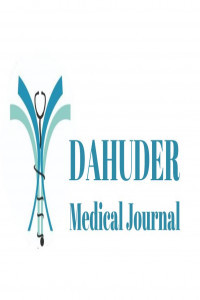Approach To Diagnosis And Treatment Of Familial Hyperlipidemia
Approach To Diagnosis And Treatment Of Familial Hyperlipidemia
Familial hyperlipidemia heterozygous familial hyperlipidemia, homozygous familial hyperlipidemia, low-density lipoprotein receptor mutation,
___
- Goldberg AC, Hopkins PN, Toth PP, Ballantyne CM, Rader DJ, Robinson JG, et al. Familial hypercholesterolemia: screening, diagnosis and management of pediatric and adult patients: clinical guidance from the National Lipid Association Expert Panel on Familial Hypercholesterolemia. J Clin Lipidol 2011; 5:S1. https://doi.org/10.1016/j.jacl.2011.04.003.
- Gidding SS, Champagne MA, de Ferranti SD, Defesche J, Ito MK, Knowles JW, et al. American Heart Association Atherosclerosis, Hypertension, and Obesity in Young Committee of Council on Cardiovascular Disease in Young, Council on Cardiovascular and Stroke Nursing, Council on Functional Genomics and Translational Biology, and Council on Lifestyle and Cardiometabolic Health. The Agenda for Familial Hypercholesterolemia: A Scientific Statement From the American Heart AssociationCirculation.2015Dec 1;132(22):2167-92.https://doi.org/10.1161/CIR.0000000000000297.
- Futema M, Whittall RA, Kiley A, Steel LK, Cooper JA, Badmus E, et al. Simon Broome Register Group, Humphries SE. Analysis of the frequency and spectrum of mutations recognised to cause familial hypercholesterolaemia in routine clinical practice in a UK specialist hospital lipid clinic. Atherosclerosis. 2013; Jul;229(1):161-8. https://doi.org/10.1016/j.atherosclerosis.2013.04.011.
- Austin MA, Hutter CM, Zimmern RL, Humphries SE. Genetic causes of monogenic heterozygous familial hypercholesterolemia: a HuGE prevalence review. American journal of epidemiology. 2004;160:407-420. https://doi.org/10.1093/aje/kwh236.
- Pirillo A, Garlaschelli K, Arca M, Averna M, Bertolini S, Calandra S, et al. LIPIGEN Group. Spectrum of mutations in Italian patients with familial hypercholesterolemia: New results from the LIPIGEN study. Atheroscler Suppl. 2017 Oct;29:17-24.https://doi.org/10.1016/j.atherosclerosissup.2017.07.002.
- Humphries SE, Whittall RA, Hubbart CS, Maplebeck S, Cooper JA, Soutar AK, et al. Genetic causes of familial hypercholesterolaemia in patients in the UK: relation to plasma lipid levels and coronary heart disease risk. J Med Genet 2006; 43:943. https://doi.org/10.1136/jmg.2006.038356.
- Bouhairie, Victoria Enchia,Anne Carol Goldberg. Familial hypercholesterolemia. Cardiology clinics vol. 33,2 (2015): 169-79. https://doi.org/10.1016/j.ccl.2015.01.001.
- Oosterveer DM, Versmissen J, Yazdanpanah M, Hamza TH, Sijbrands EJ. Differences in characteristics and risk of cardiovascular disease in familial hypercholesterolemia patients with and without tendon xanthomas: a systematic review and meta-analysis.Atherosclerosis 2009;207:311-7. https://doi.org/10.1016/j.atherosclerosis.2009.04.009.
- Defesche JC, Gidding SS, Harada-Shiba M, Hegele RA, Santos RD, Wierzbicki AS. Familial hypercholesterolaemia. Nat Rev Dis Primers. 2017 Dec 7; 3:17093. https://doi: 10.1038/nrdp.2017.93. PMID: 29219151.
- Marks D, Wonderling D, Thorogood M, Lambert H, Humphries SE, Neil HA, et al. Cost effectiveness analysis of different approaches of screening for familial hypercholesterolaemia. BMJ 2002;324:1303. https://doi.org/10.1136/bmj.324.7349.1303.
- Nordestgaard BG, Chapman MJ, Humphries SE, Ginsberg HN, Masana L, Descamps OS, et al. Familial hypercholesterolaemia is underdiagnosed and undertreated in the general population: guidance for clinicians to prevent coronary heart disease: consensus statement of the European Atherosclerosis Society. Eur Heart J 2013; 34:3478. https://doi.org/10.1093/eurheartj/eht273.
- Graham CA, McIlhatton BP, Kirk CW, Beattie ED, Lyttle K, Hart P, et al. Genetic screening protocol for familial hypercholesterolemia which includes splicing defects gives an improved mutation detectionrate. Atherosclerosis2005; 182:331–40. https://doi.org/10.1016/j.atherosclerosis.2005.02.016.
- Taylor A, Wang D, Patel K, Whittall R, Wood G, Farrer M, et al . Mutation detection rate and spectrum in familial hypercholesterolaemia patients in the UK pilot cascade project. Clin Genet 2010;77:572-80. https://doi.org/10.1111/j.1399-0004.2009.01356.x.
- Haase A, Goldberg AC. Identification of people with heterozygous familial hypercholesterolemia. Current opinion in lipidology. 2012;23:282-289.https://doi.org/10.1097/MOL.0b013e3283556c33.
- Cuchel M, Bruckert E, Ginsberg HN, Raal FJ, Santos RD, Hegele RA, et al. Homozygous familial hypercholesterolaemia: new insights and guidance for clinicians to improve detection and clinical management. A position paper from the Consensus Panel on Familial Hypercholesterolaemia of the European Atherosclerosis Society. Eur Heart J 2014; 35:2146.https://doi.org/10.1093/eurheartj/ehu274.
- Padmanabhan A, Connelly-Smith L, Aqui N, Balogun RA, Klingel R, Meyer E, et al. Guidelines on the Use of Therapeutic Apheresis in Clinical Practice – Evidence-Based Approach from the Writing Committee of the American Society for Apheresis: The Eighth Special Issue. J Clin Apher.2019;34:171–354. https://doi.org/10.1002/jca.21705. Referans17 Tikka A, Jauhiainen M. The role of ANGPTL3 in controlling lipoprotein metabolism. Endocrine ,2016; 52:187–193. https://doi.org/10.1007/s12020-015-0838-9.
- Kastelein JJ, Akdim F, Stroes ES, Zwinderman AH, Bots ML, Stalenhoef AF, V, et al. Simvastatin with or without ezetimibe in familial hypercholesterolemia. N Engl J Med 2008; 358:1431. https://doi.org/10.1056/NEJMoa0800742.
- Thorogood M, Seed M, De Mott K. Guideline Development Group. Management of fertility in women with familial hypercholesterolaemia: summary of NICE guidance. BJOG 2009 Mar;116(4):478-9. https://doi: 10.1111/j.1471-0528.2008.02084.x.
- Nanchen D, Gencer B, Muller O, Auer R, Aghlmandi S, Heg D, et al. Prognosis of Patients With Familial Hypercholesterolemia After Acute Coronary Syndromes. Circulation 2016; 134:698. https://doi.org/0.1161/CIRCULATIONAHA.116.023007.
- Yayın Aralığı: Yılda 4 Sayı
- Başlangıç: 2021
- Yayıncı: DAHUDER
Approach To Diagnosis And Treatment Of Familial Hyperlipidemia
Kübra ÇERÇİ, İmge Bortay TEKİN, Seyit UYAR
Evaluation of Interleukin 6 Levels in Severe COVID-19 Patients
Yıldız OKUTURLAR, İftihar KÖKSAL, Yasemin GÜNDOĞDU, Arzu YÜKSEL, Özgür OKUTURLAR, Fadıl HAVAS, Cem GUN
Right time for the community based mental health care
İhsan SOLMAZ, Ömer Faruk ALAKUŞ, Yusuf YAKUT, Yunus TEKİN, Sedrettin KOYUN, Eşref ARAÇ
